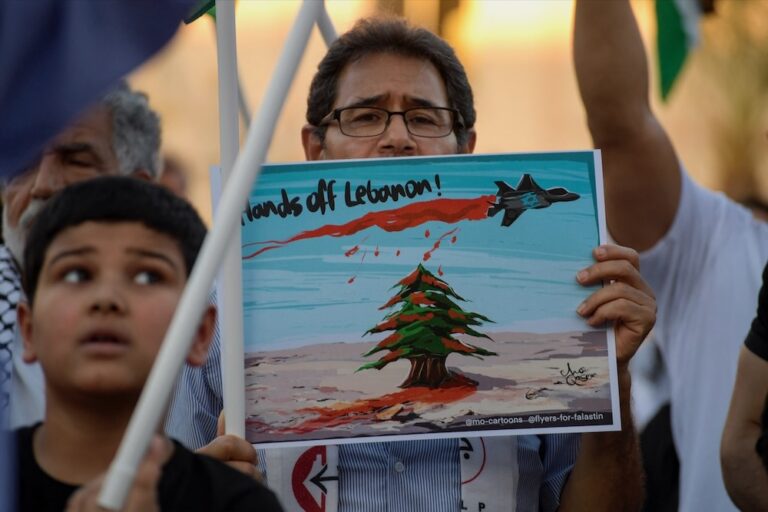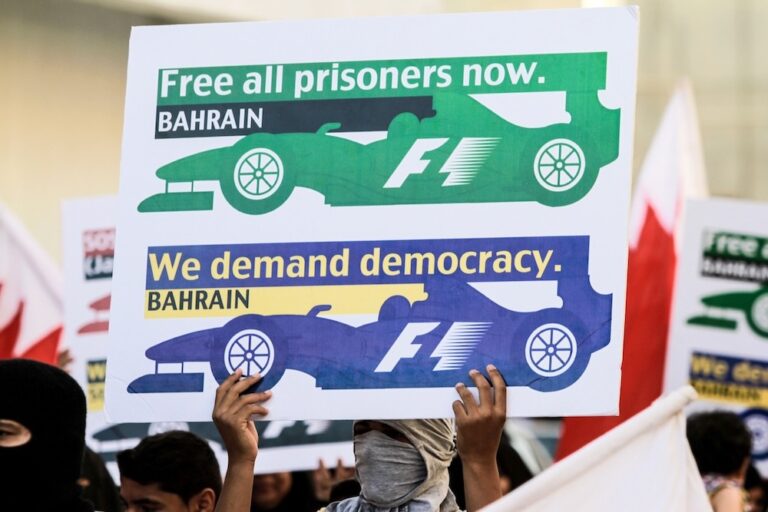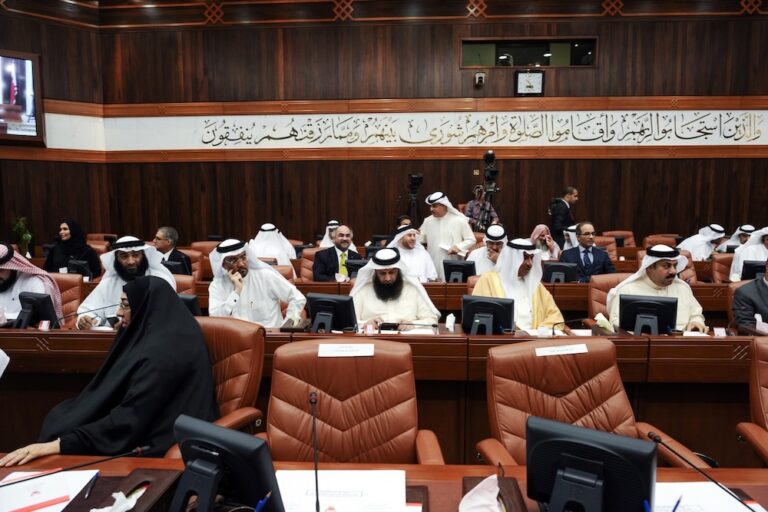On 6 August 2014, a Bahraini criminal court issued a sentence to revoke the citizenship of nine Bahrainis after charging them with spying for the Iranian National Guard, forming a terrorist organization and smuggling weapons into Bahrain.
The Bahrain Center for Human Rights (BCHR) expresses its deep concern at the adoption by the Bahraini authorities of the revocation of citizenship as a means to put pressure on activists and pro-democracy campaigners.
The tactic is used to deprive them of their right to freedom of expression and to form peaceful gatherings to claim self-determination. On 6 August 2014, the Fourth High Criminal Court, presided over by Judge Khalifa Al-Dhahrani, issued a sentence to revoke the citizenship of nine Bahrainis, after charging them with spying for the Iranian National Guard, forming a terrorist organization and smuggling weapons into Bahrain.
The court based its sentence on the legitimacy of Article (2) of Decree Law No. (20) of 2013 which protects society from terrorist acts and states: “In addition to the penalty prescribed, citizenship can be withdrawn from those convicted with the crimes stated in Articles (5), (9), (12) and (17) of this law; the withdrawal sentence is effective only after ratification by the King.”
Chief Public Prosecutor Wael Buallay stated that those who had their citizenship revoked had been convicted of forming a terrorist organization that aims to smuggle weapons into Bahrain and free a group of detainees at the Dry Dock Detention Center.
He said that the court based its sentence on the confessions of detainees in addition to a map that one of them had in his possession showing the layout of the Dry Dock Detention Center. He added in a statement that it is likely citizenship will be withdrawn from those convicted in terrorist cases in the future, especially since the decision to revoke citizenship has become a mandatory matter for the court, and leaves no room for the judge’s assessment. Following is a list of names of detainees whose citizenships have been revoked, according to a report by one of their lawyers:
- Hamed Jaffar Mohammed (30 years) – 15 years imprisonment and withdrawal of citizenship
- Nedhal Ali Mohammed Isa (30 years) – 15 years imprisonment and withdrawal of citizenship
- Ali Riyad Hameed Ali Sangoor (34 years) – 15 years imprisonment and withdrawal of citizenship
- Hussein Jassim Isa Al-Banaa (24 years) – 22 years imprisonment and withdrawal of citizenship
- Sayed Hashim Radhi Hassan Majid (22 years) – 7 years imprisonment and withdrawal of citizenship
- Mohammed Abbas Ebrahim Mahdi (25 years) 7 years imprisonment and withdrawal of citizenship
- Ali Hasan Adam Qaher (25 years) – 7 years imprisonment and withdrawal of citizenship
- Ali Ahmed Al-Asfoor (25 years) – 7 years imprisonment and withdrawal of citizenship
- Jalal Ali Mohammed Ali (22 years) – 7 years imprisonment and withdrawal of citizenship
The authorities have previously revoked the citizenship of 31 Bahraini nationals, among them two former MPs, clerics and a lawyer, in addition to political activists and a woman. They were all accused of harming Bahrain’s security[5]. Based on this sentence, Sheikh Hussein Al-Najati was deported[6], in a move seen by international human rights organizations as sectarian persecution and a violation of the legal system. The lawyer Taymoor Karimi – who had his citizenship revoked – was also prevented from of practicing his job, although he had not received an official decision of the matter[7]. The Ministry of Interior summoned those who had their citizenship revoked and asked them to adjust their situation – it threatened them with legal action if they did not respond to the request[8].
The BCHR considers the approach of the authorities in making this punishment law merely a tool to put pressure on activists and intimidate others from practicing their rights to freedom of expression, peaceful protest and self-determination. This is especially concerning given that the sanction of citizenship withdrawal is equal to the death penalty in terms of its gravity. Moreover, the phrase “protecting the community from terrorist acts” is broad, and no appendix has been released to explain its details, despite the of the sentence and its consequences. This act contradicts Article 15 of the Universal Declaration of Human Rights which states, ‘(1) Everyone has the right to a nationality. (2) No-one shall be arbitrarily deprived of his nationality nor denied the right to change his nationality.’
Based on the above, the Bahrain Center for Human Rights calls on the United States, the United Kingdom, the United Nations and all other close allies and concerned international institutions to exercise real pressure on the government of Bahrain in order to:
- Restore citizenship to all citizens who were included in the decision to withdraw doing it.
- Halt the policy of citizenship withdrawal used as a punishment against opponents who practice their right to freedom of expression.
- Join and adhere to the 1954 UN Convention relating to the Status of Stateless Persons and the 1961 Convention on the Reduction of Statelessness.


